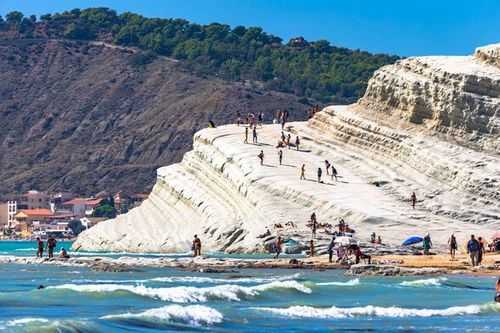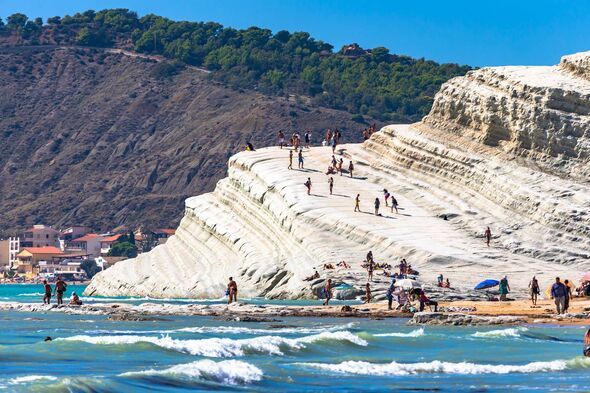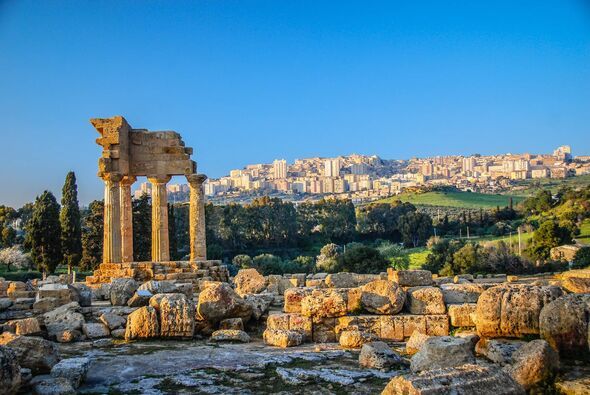

Agrigento, the city set to be the Capital of Culture in 2025, is facing a severe water crisis that could be exacerbated by an influx of tourists.
The historic Sicilian city, known for its large tourist draw, is grappling with a water shortage due to its hilltop location on the southwest coast of .
Water reserves are typically stored in cisterns and delivered via tankers. However, climate change and a prolonged drought have escalated the situation.
Agrigento's ageing and leaking underground aqueduct system, which captures the city's water supply, adds to the problem. Despite discussions about upgrading the water network since 2011, no work has been carried out.
In May 2024, the Italian government allocated €20million (£16.7million) to purchase water tankers and dig new wells in Sicily, but only 17 percent of the planned works were completed by July.
The water shortage also threatens Agrigento's historical and cultural sites, such as the Valley of the Temples, an agricultural landscape that could be compromised or altered if the drought and water emergency persist, according to Fodor's.
Water shortages have led to the closure of some businesses, with many households resorting to storing water in containers for cooking and washing. Small hotels and guest houses are finding it difficult to provide a consistent water supply to their guests, reports .
The situation worsens during summer, with some accommodations limiting bookings due to uncertainty over functioning toilets and showers. While larger hotels can afford to buy water from the mainland, smaller establishments lack the storage capacity or financial means to do so.
A local short-term rental owner revealed in June that he had to install two water tanks as one was insufficient to meet the property's water needs. He warned that if the situation persisted, he would be forced to close and cancel existing reservations.

Some hoteliers have resorted to installing tap aerators to reduce water flow in sinks and showers. To alleviate the pressure, regional authorities have reportedly implemented short and long-term strategies such as reactivating disused wells, maintaining dams, and building new desalination plants.
They also plan to tap into vast underground water deposits identified in recent studies. The area is experiencing its worst drought in 30 years, affecting around one million people.
Officials in Agrigento declared a state of crisis and a water emergency for irrigation and drinking back in February, with the measures set to last until at least the end of 2024. Amidst scorching temperatures, residents faced water rationing over the summer, slashing their consumption by up to 45 percent.
In August, the parched populace took to the streets in protest. "The water situation in the capital and the province has become unsustainable, with frequent service interruptions and unsustainable distribution shifts," lamented Cartello Sociale di Agrigento, a coalition of unions and church authorities, as reported by Fodor's.
Agrigento's reliance on tourism complicates matters, as officials are loath to deter visitors despite the strain they place on the city's already overstretched water system.
"If the period of drought and water emergency were to continue, it is clear that it could represent a serious problem for an event such as Agrigento Capital of Culture 2025 which will attract significant flows of Italian and foreign visitors and tourists," warned Giuseppe Abbate, a professor of urban planning at the University of Palermo, in a conversation with Fodor's.